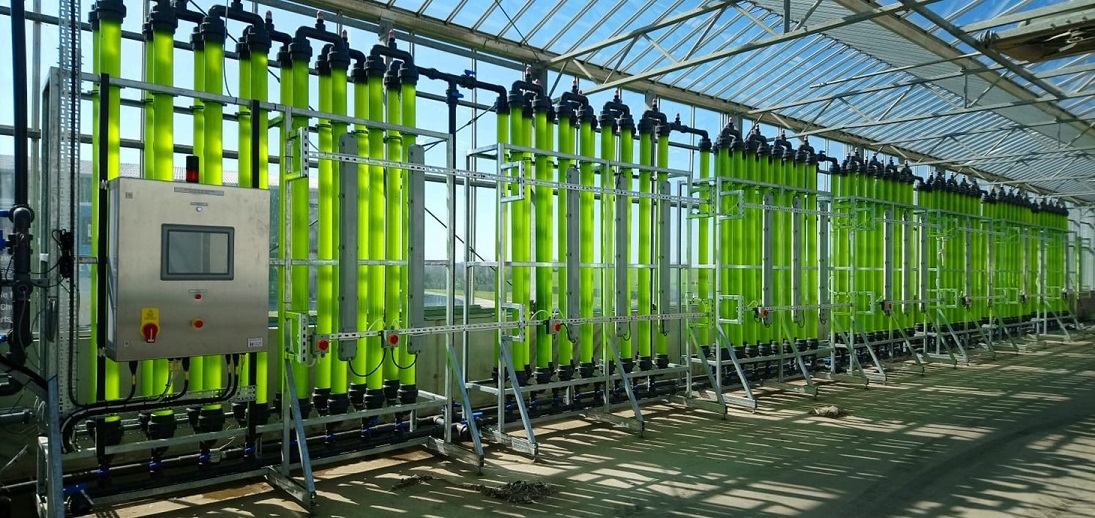These articles are now archived and will no longer be updated.

A ground-breaking Swansea University project is using microalgae to explore how to reuse waste while increasing food production.
Microalgae are microscopic photosynthetic cells found naturally in the oceans and lakes. But Swansea scientists are now using a more novel source of nourishment to grow them – unwanted nutrients from food waste.
Sites treating food waste use a process called anaerobic digestion (AD) to produce energy. This uses the carbon in waste to produce a biogas that can generate electricity.
The AD process also produces a rich source of nutrients. Some of these nutrients can be used on agricultural land as biofertilizer but pollution risks mean there are strict limits on how much can be used.
However, algae thrive on these nutrients converting them into protein which can in turn be fed to farm animals as a replacement to less sustainable soya protein.
The ALG-AD project, led by the University’s College of Science, is investigating this circular process which sees nutrients being used to generate another resource of value.
Principal investigator Professor Carole Llewellyn said: ““We know that circular economy solutions are needed to slow down or reverse the effects of climate change on our planet and the work we are doing in this field really is pioneering.
“With our project partners, we have already developed the technology to convert waste nutrients into algae across three sites in Europe.”
They are now about to embark on feed trials with colleagues in France to test their cultivated algae as an alternative to soya protein.
ALG-AD is a four-year Interreg NWE funded project which brings together scientists, engineers and industrial partners from 11 organisations in four countries across north west Europe.
Professor Llewellyn added: “Microalgae already form an essential part of the planet’s ecosystem, and our work is exploring innovative ways in which these amazing photosynthetic microorganisms can provide solutions to global challenges.”
The goal is for the team’s approach to be adopted by sites across north west Europe, not only reducing the pollution risk from nitrates spread on land but also providing a locally cultivated, sustainable alternative to soya. Tools and data to support stakeholders will be prepared in the coming months.
The ALG-AD team is available to share information and further details are available from Project Manager Louise Hall
